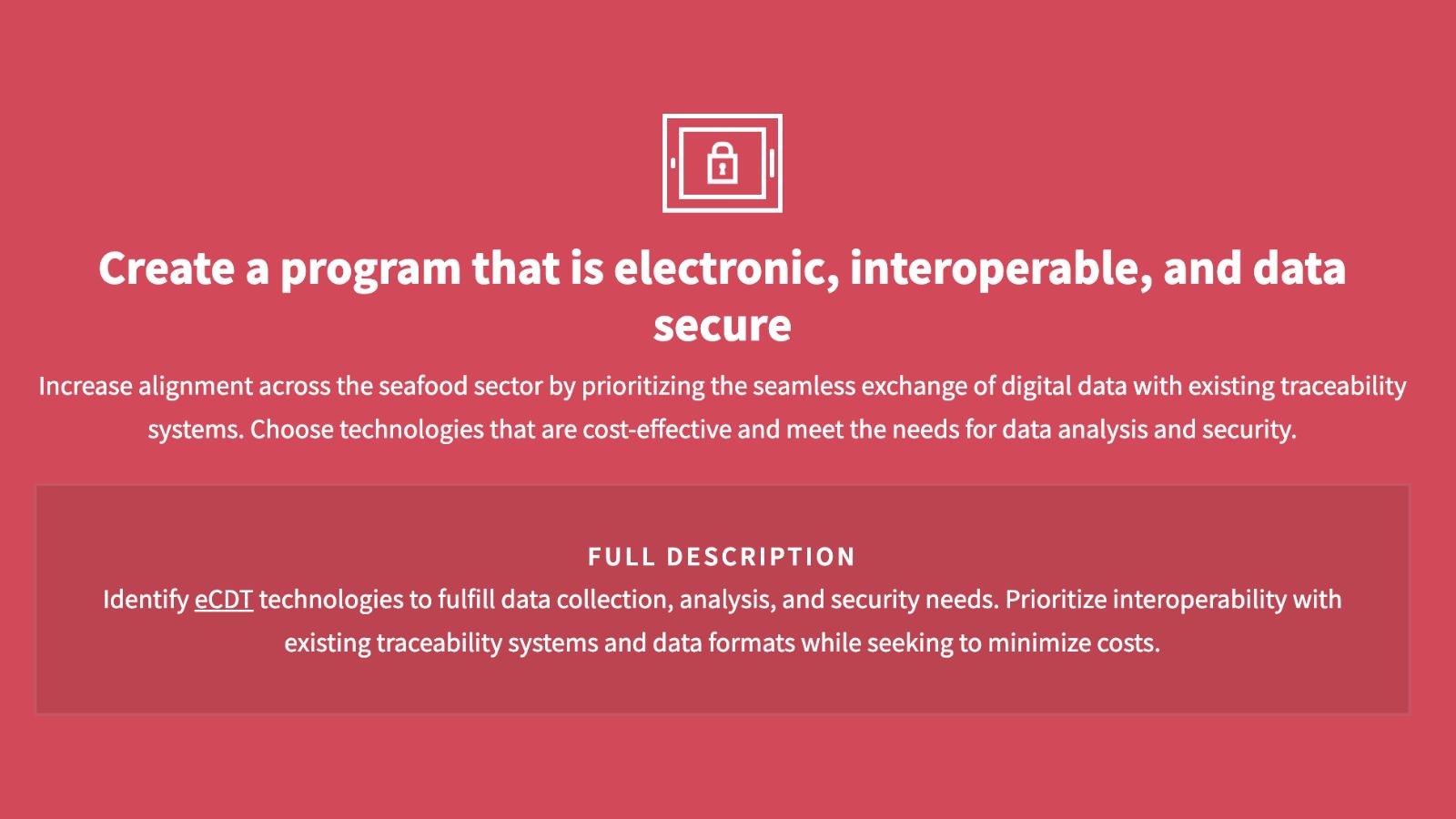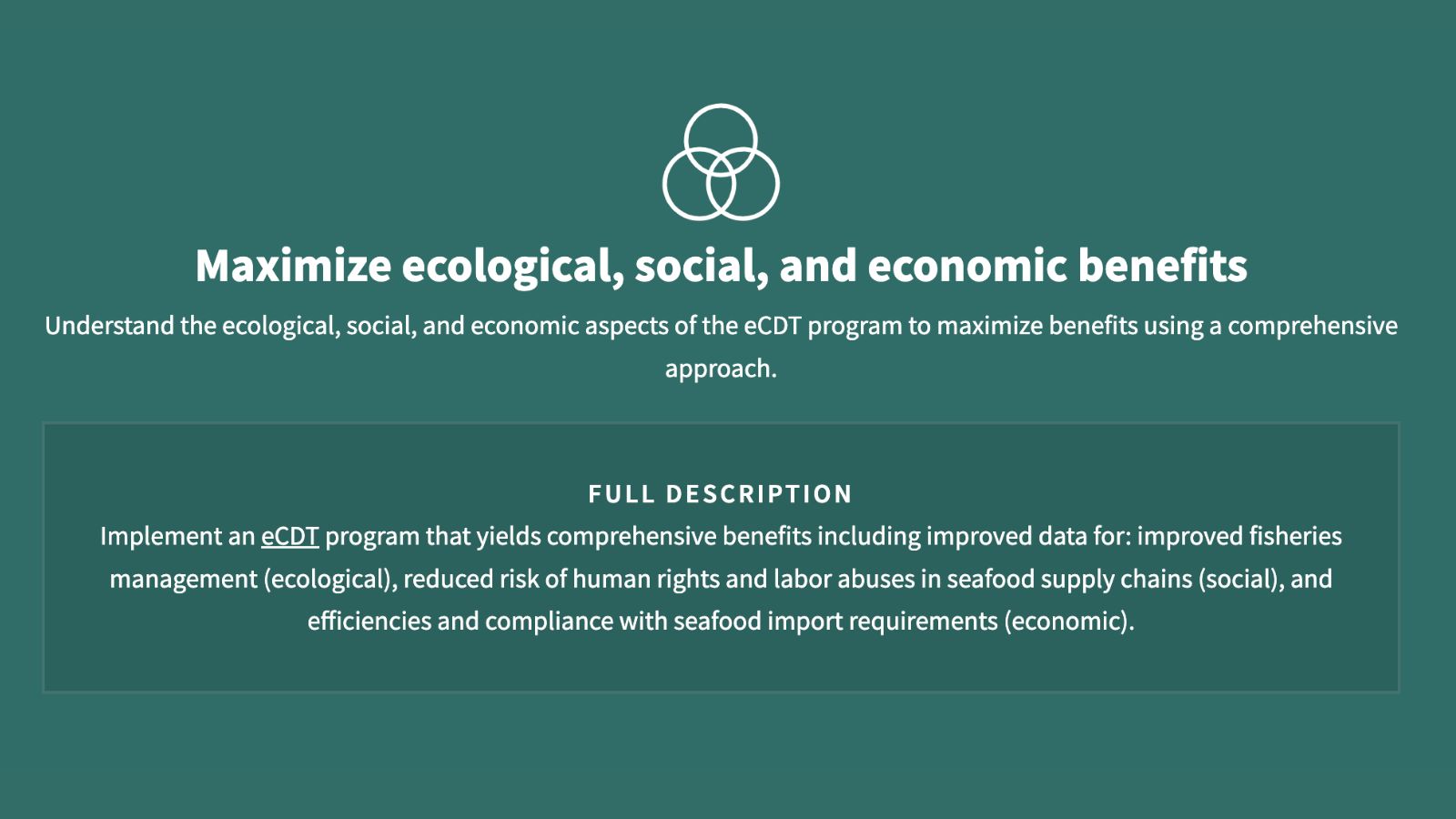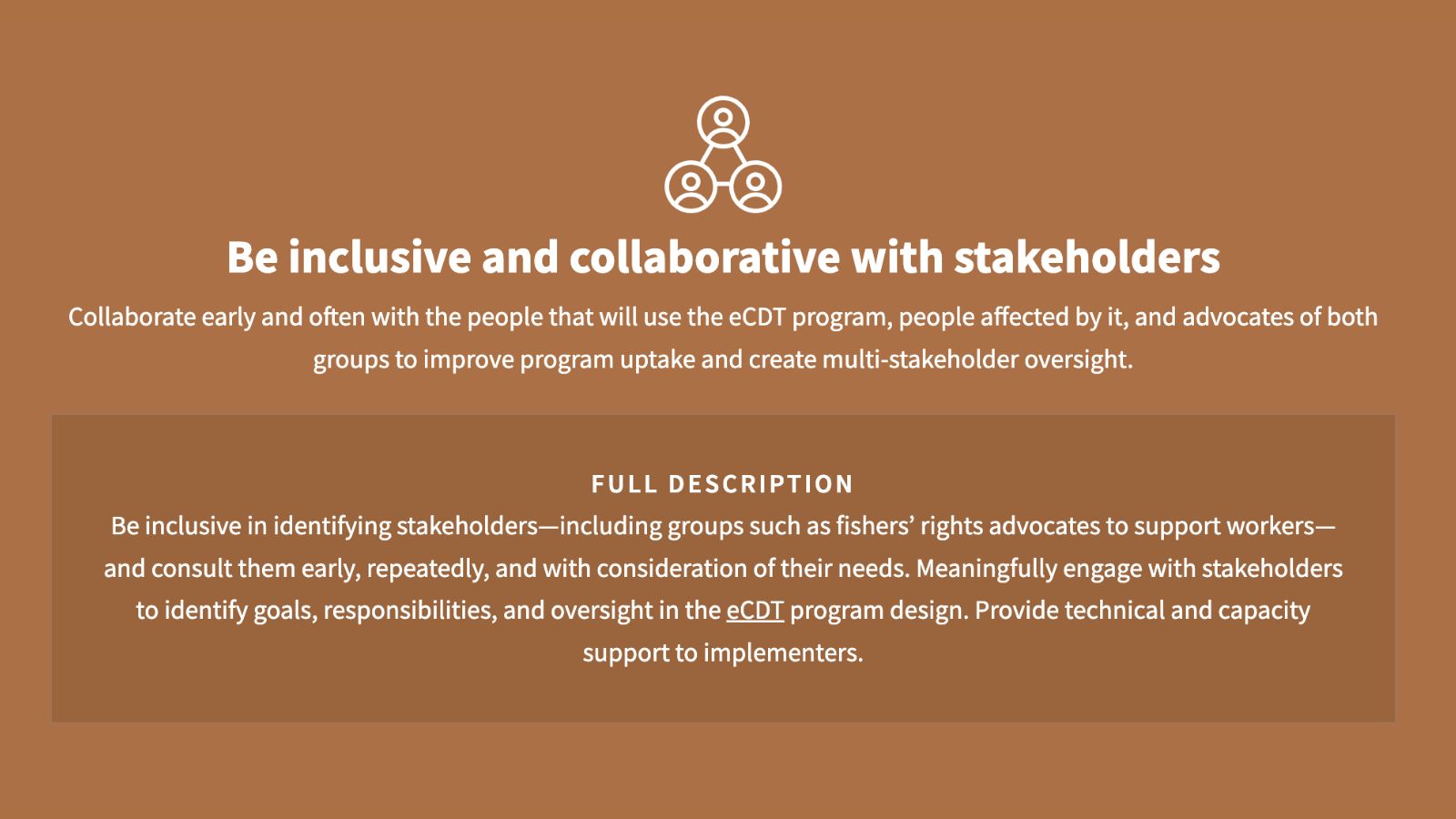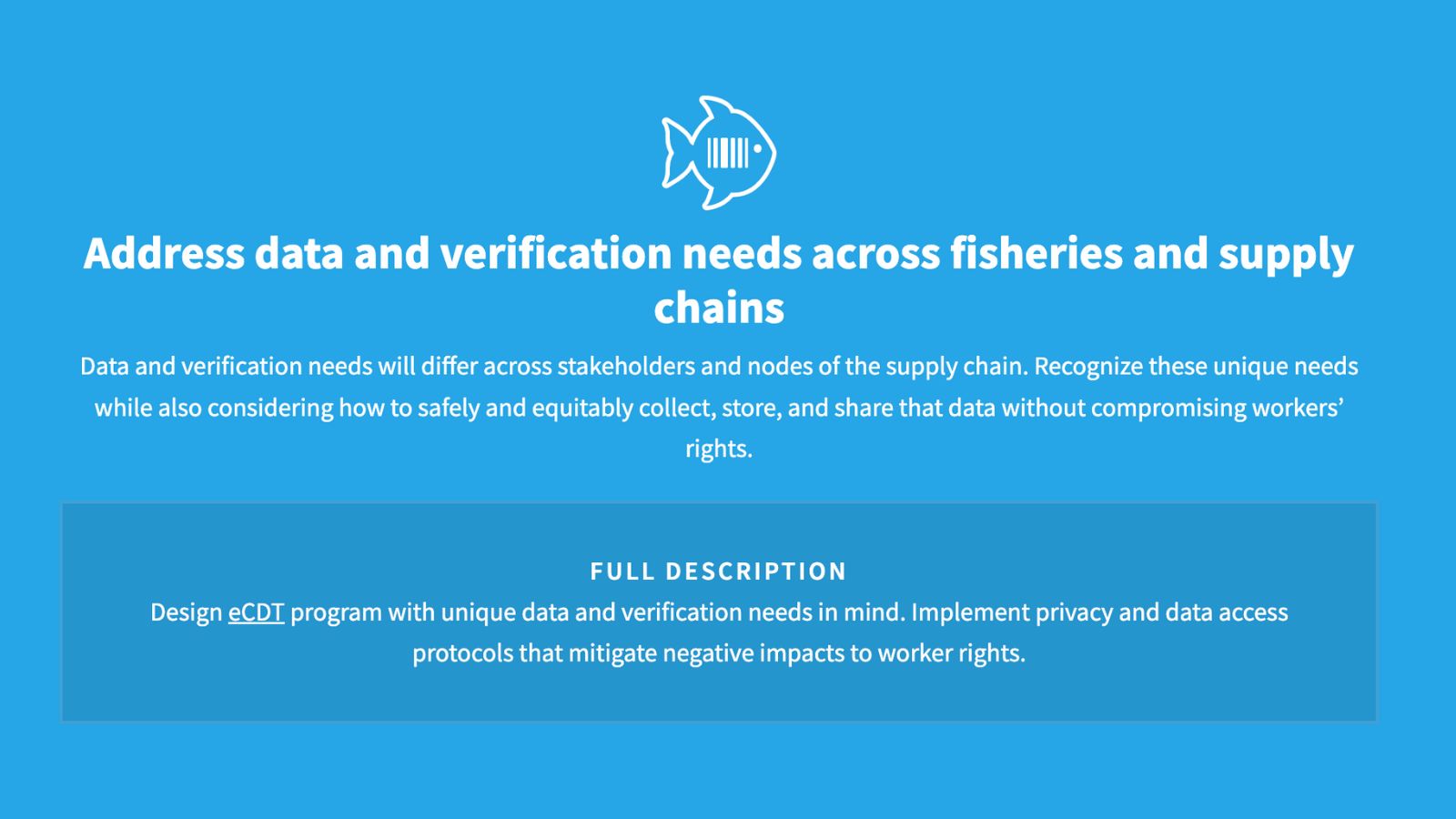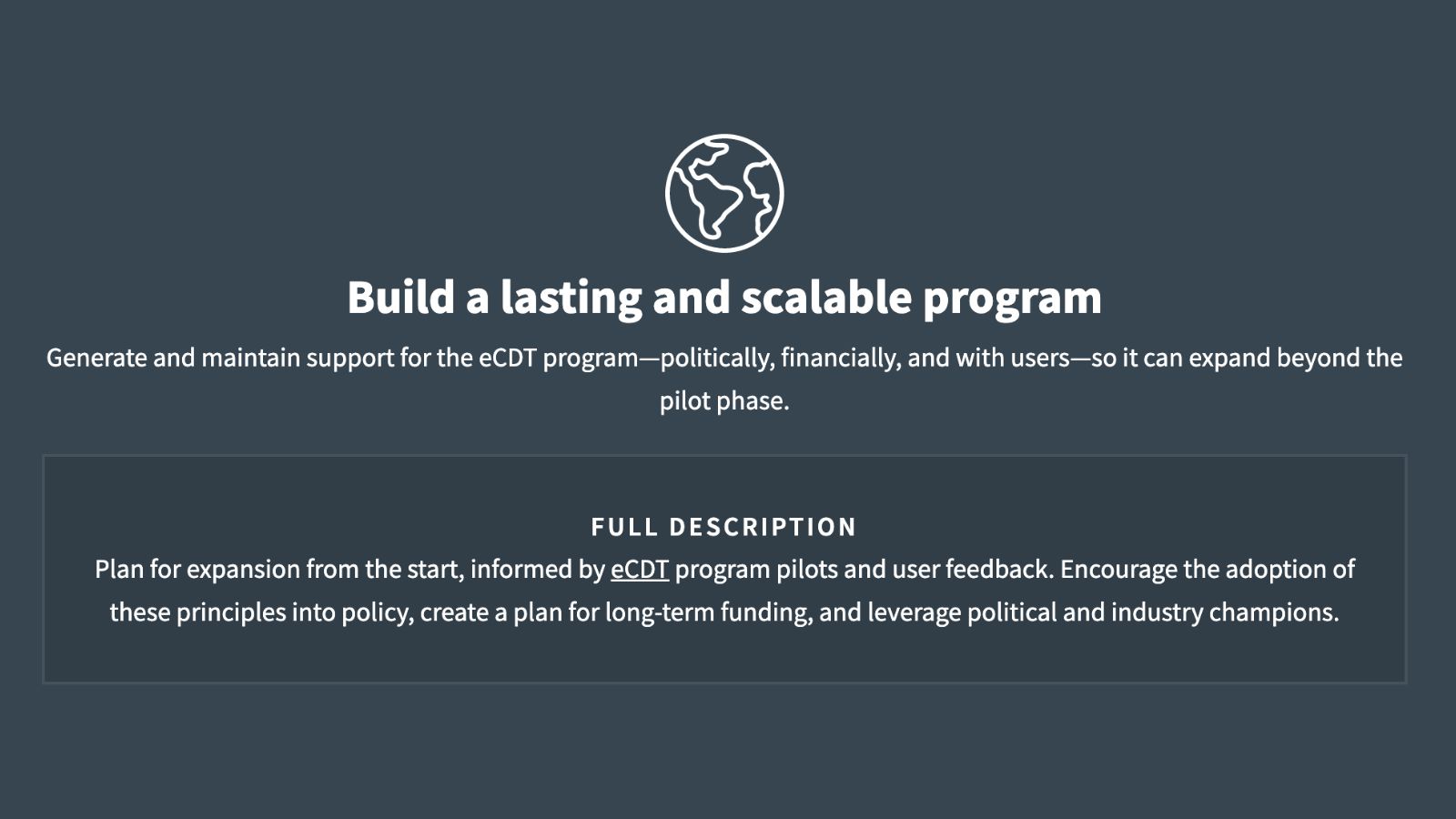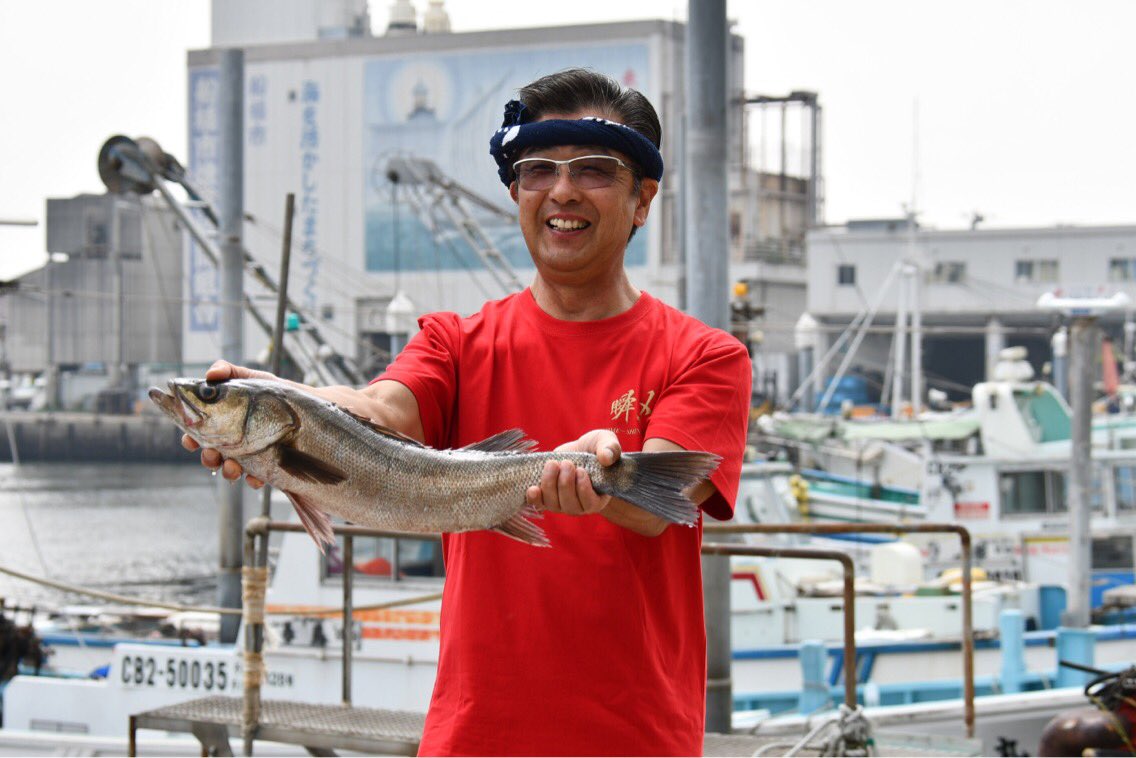
Giving Fish a Passport? A New Electronic Traceability Effort in Japan
In 2018, the government of Japan launched the Smart Fishery campaign. This new initiative aimed to energize Japan’s declining fisheries by bringing innovative approaches that utilize new technologies, such as the Internet of Things (IoT) and other information and communication tools. Compared to other countries where fishing industries continue expanding, fishing communities throughout Japan have suffered from the aging fisher population and lack of successors. These problems, combined with a lack of proper management, jeopardize the survival of the local, small-scale fisheries and the unique culture that supports Japan’s domestic fishing industry.
In addition to the Smart Fishery campaign, several policy reforms were made to support science-based fisheries management and counter illegal, unreported, and unregulated (IUU) fishing efforts and to align with other major importing markets such as the EU and the U.S.
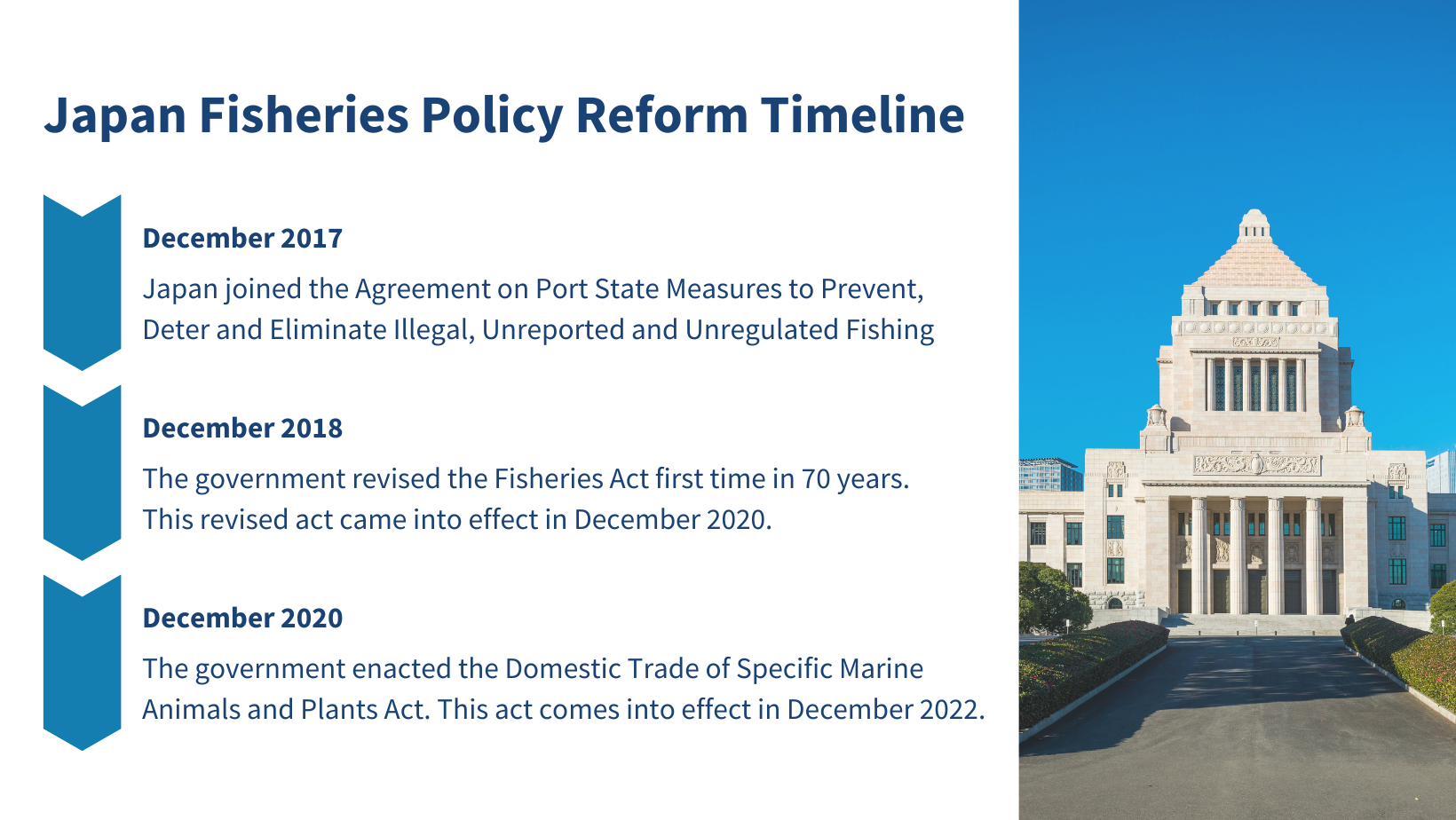
The recent Domestic Trade of Specific Marine Animals and Plants Act established measures to prevent domestic and imported seafood products caught illegaly from entering supply chains (click here to learn more about seafood import regulations). Although this act currently only applies to high-risk species, it requires detailed catch information that is traceable. There is an overall trend to promote electronic traceability of all seafood in both the public and private sectors.
Sustaining the Fisheries for another 100 years
In Tokyo Bay, a local fisher whose family has been in the fishing industry for over 100 years is breaking with tradition and leading a new era for Japan’s domestic fisheries by adopting full-chain electronic blockchain traceability into their business. Mr. Kazuhiko Ono, a third-generation Tokyo Bay sea perch fisher and the CEO of Kaiko Bussan Inc., was born and raised in the Tokyo Bay area. Tokyo Bay was known for its abundant fishing grounds and diverse species in his grandfather’s time. However, large-scale industrialization and overfishing have damaged the fishing grounds since then. Mr. Ono was eager to protect and inherit the sea perch fisheries for future generations, and decided to launch the Japan Tokyo Bay Sea Perch Fisheries Improvement Project (FIP)* with UMITO Partners Inc. to revitalize the fisheries.
* This project was initially developed and implemented by Ocean Outcomes and is now managed and maintained by UMITO Partners.

Mr. Ono is not just a fisher—he is also a great business person. Through his initiative, he ensured that society recognized the reality of small to mid-scale fisheries. Many media outlets covered this first FIP in Japan, and retailers pledged to support the FIP by selling its products. He was also keen to improve the efficiency of the data collection process by switching from paper-based to electronic data collection. Umito Partners connected Mr. Ono with several technology providers and started the dialogue to establish a full-chain blockchain traceability system.
This group was formalized in October 2020 as the Ocean to Table Council.
Ocean to Table Council
The Ocean to Table Council, which includes fishers, technology providers, and fishery consultants, provides traceability systems that use advanced IT, such as blockchain, IoT, and voice recognition technology. This initiative aims to contribute to sustainable fisheries by advancing end-to-end traceability technology and data collection and communicating information about the fisheries with society.
The foundation of this initiative is IBM Food Trust, which is used by more than 200 businesses across many industries worldwide. The IBM Food Trust is a multi-user online platform that verifies the distribution channels of products, manages data from catch documentation, analyzes freshness, and provides consumer-facing applications.
Data Flow and Efficient Operations
In 2021, the Council launched the Edomae Fish Passport Fair to test its full-chain electronic blockchain traceability from the point of catch to final sale with consumers. Interestingly, several technology providers collaborated to leverage their knowledge of specific fields and existing technology to maximize operational efficiency.
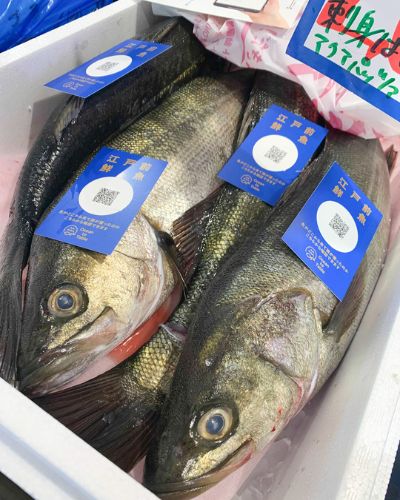
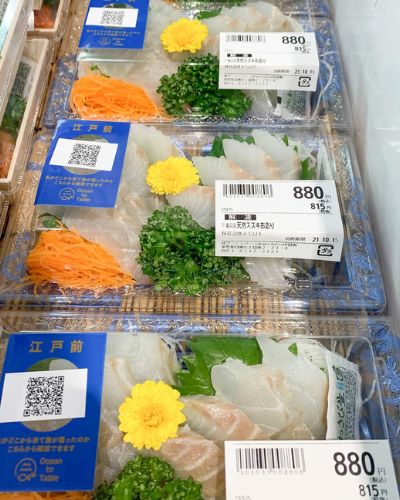
All information collected at each critical tracking event (CTE)—fishing vessel, processing and distribution, and retail and restaurant—is reported to a blockchain platform operated by IBM Japan (the technology provider) and IX Knowledge (the technology implementor). At each CTE, different systems are implemented to meet businesses’ unique operational needs.
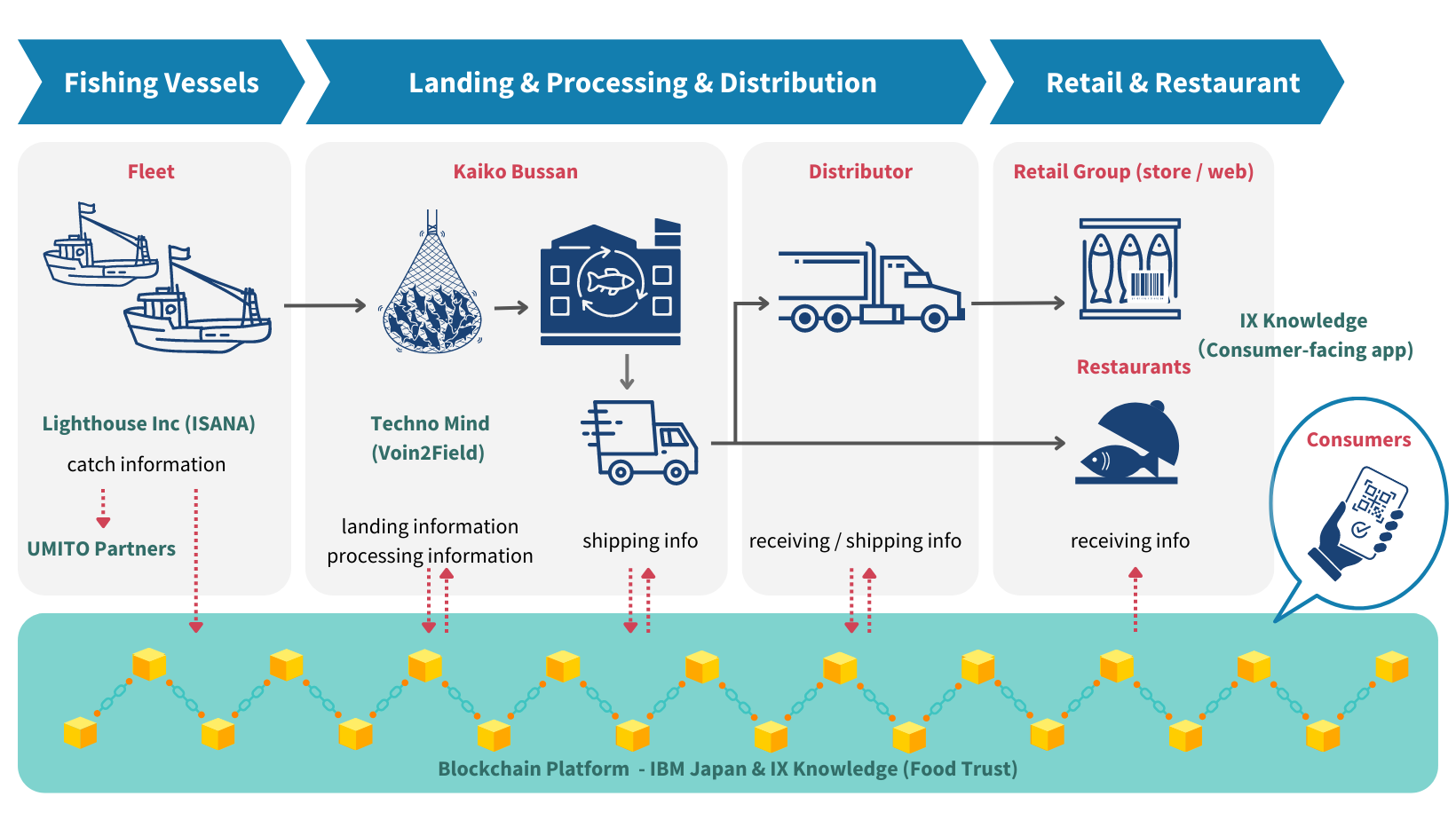
Information interoperability is an essential part of this system to connect multiple technology applications through a single platform. In this project, all technology providers used the Global Dialogue on Seafood Traceability standards for data collection to assure interoperability in the supply chain—from the point of catch to the final sales.
Furthermore, consumers can check product information, such as the date, time, and location of the catch and the processing and distribution history, through QR codes and view recommended recipes and fisher profiles. This information can also give consumers hae confidence in the product they are buying. Currently, the group is working on adding a feature that will allow consumers to send feedback to the parties involved in the supply chain.
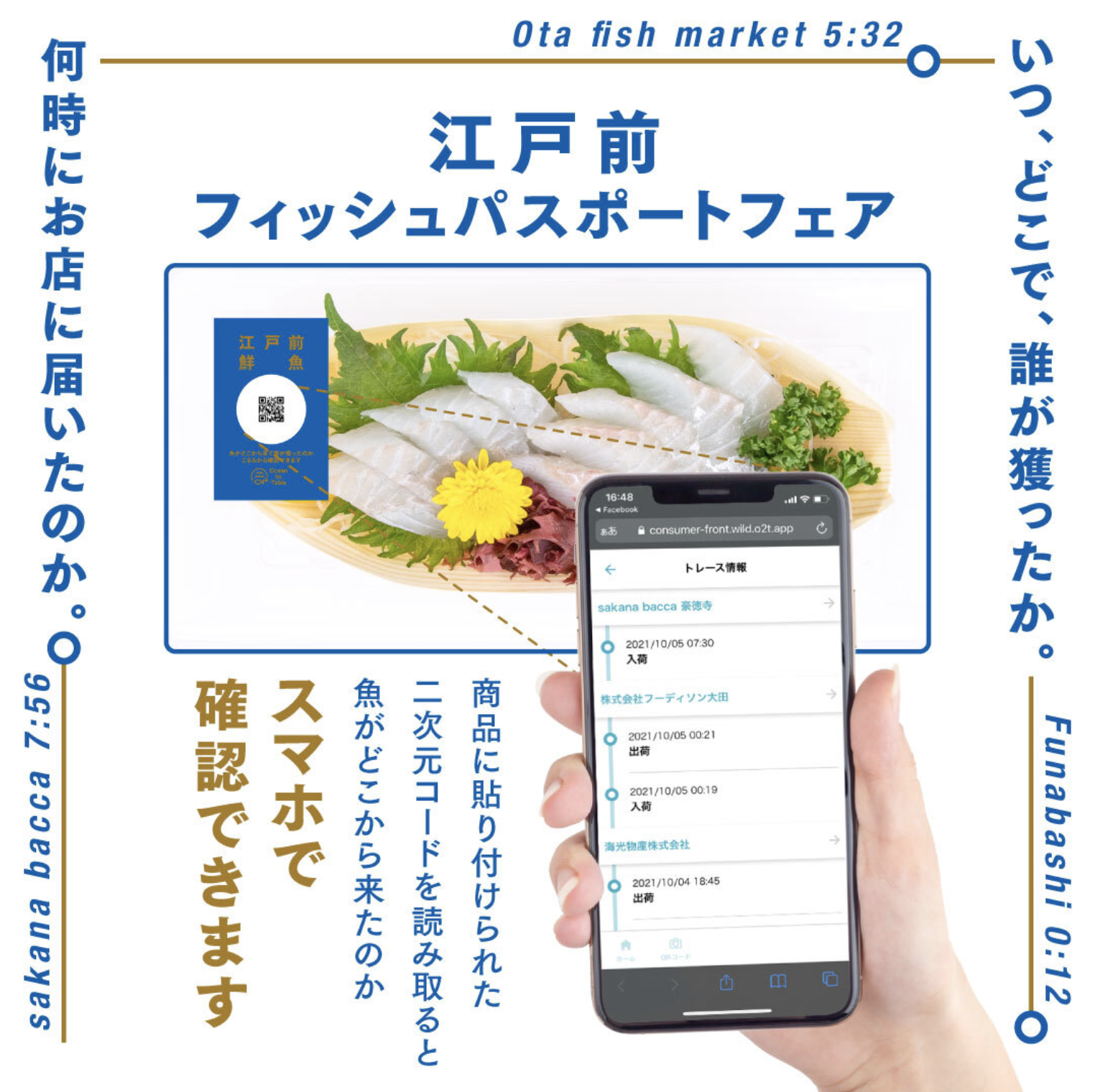
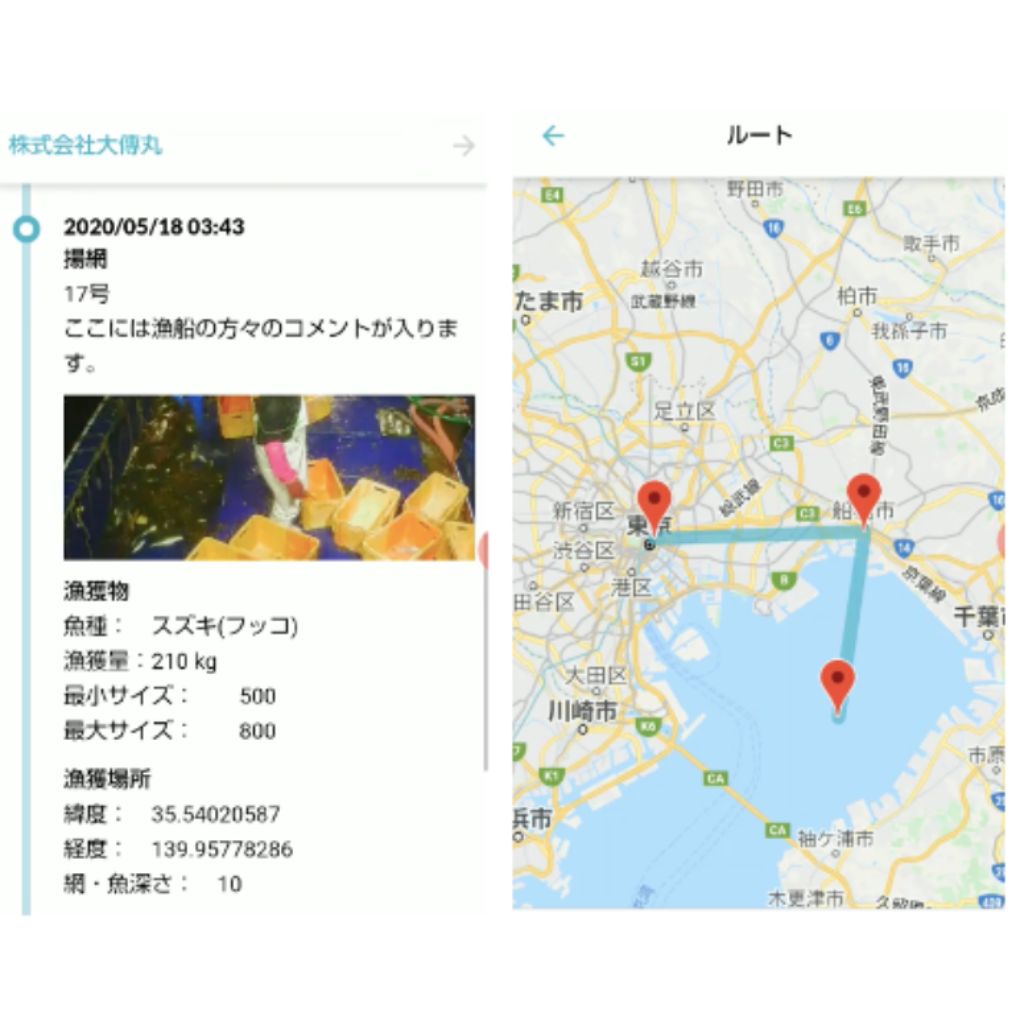
All the information collected throughout the supply chain is crucial for the sustainable and responsible management of the fisheries. The data collected by ISANA is also sent to UMITO Partners to analyze the stock’s sustainability and to monitor the progress of the FIP. This data is also shared with the local fisheries management authorities to improve the management of data-limited fisheries, like the Tokyo Bay sea perch.
Traceability and Information Disclosure—Return on Investment
The University of Tokyo conducted a survey of 1,500 consumers at retail sales outlets during the Edomae Fish Passport Fair. The results showed that products with established traceability attracted a unit price 30 yen (for a 200-gram fillet)*, which equals to about 10% of the unit price, which was higher than those without traceability. The survey also revealed that consumers who purchased products with QR codes were more likely to become repeat customers. Furthermore, the results showed that among various information available through the consumer-facing application, most consumers seek catch information to determine the taste index, such as freshness and harvest seasonality. The result of this survey suggests that sharing detailed catch information validated by a traceability system and the story about fisher’s conservation efforts can lead to product differentiation and branding.
In addition, the benefits of implementing electronic traceability vary depending on the CTEs in the supply chain. Moving from a paper-based system to an electronic system reduces labor costs and recoups the cost of implementation in the long run. However, this is only the case when the objectives of all involved parties are successfully addressed. It is essential to share each party’s roles and goals during the early conversation stages to build a win-win relationship when building an electronic traceability program in a complex supply chain.
*about $0.25 USD per 7oz fillet.
Moving Forward
The Ocean to Table Council plans to run several pilot projects to establish a full-chain electronic traceability program that can adapt to Japan’s complex supply chain structure. As the project progresses, expectations are it will contribute to better resource management by capturing accurate catch information from small-scale data-limited fisheries throughout Japan.
Traceability is an information tool and can improve the ecological, social, and economic aspects of fisheries when used correctly.

